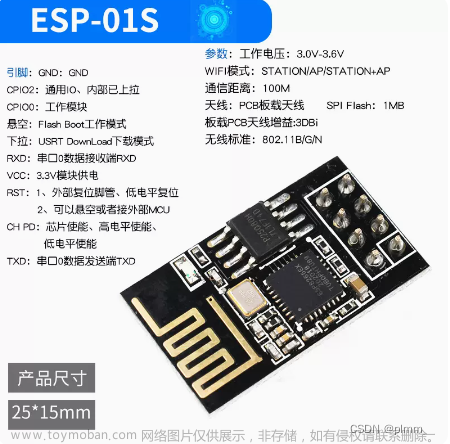一、背景知识
【1】什么是NTP服务器?
NTP是网络时间协议(Network Time Protocol,简称NTP),是一种用于同步计算机时间的协议。NTP服务器指的是提供NTP服务的计算机或设备。NTP服务器的主要功能是保证网络上的所有设备的时间同步,以确保各个设备相互之间的时间协调一致。NTP服务器通常连接到具有高度精确时间源的设备,例如:GPS接收器或原子钟,以确保提供准确如一的时间。网络上的计算机可以通过连接到NTP服务器来同步其时间,并确保它们在同一时刻进行操作。

目前有许多可以使用的NTP服务器,以下是一些常用的NTP服务器列表:
1. cn.ntp.org.cn
2. ntp.sjtu.edu.cn
3. ntp.linux.org.cn
4. time.nist.gov.cn
5. ntp.aliyun.com
6. ntp.api.bz
7. ntp1.aliyun.com
8. time1.cloud.tencent.com
9. pool.ntp.org.cn
【2】RTC实时时钟是什么?
RTC (Real-Time Clock)实时时钟,是指一种专门用于记忆日期、时间的计时芯片或模块。一般包括一个时钟芯片、一块石英晶体、一块温度补偿电路、电源管理电路等组成。RTC可以精确地记录日期和时间,即使是在断电等异常情况下,也能保持记录的时间长达数年。常常用于嵌入式系统、数据采集设备等领域,是一种至关重要的设备。在某些系统应用中,RTC也会成为其他设备的时钟源,如单片机或微控制器单位等。
RTC的时间精度通常为ppm 级别,即每百万分之一,能够满足大多数实时应用场景的要求。为了提高RTC的稳定度和精度,许多RTC都带有自动校正功能,可以自动从外部时钟源或NTP服务器中获取准确的时间,并进行校正。同时,许多RTC还会集成电源管理功能,支持低功耗模式以延长电池寿命。
二、ESP8266获取网络时间
要通过ESP8266联网并获取网络时间,需要执行以下步骤:
- 在STM32F103ZET6上配置UART串口以与ESP8266进行通信。
- 使用AT指令将ESP8266连接到Wi-Fi网络。可以使用以下指令:
AT+CWJAP="SSID","password"
其中,替换 “SSID” 为自己的Wi-Fi网络名称,“password” 是Wi-Fi密码。
- 使用AT指令连接到NTP服务器并获取时间。您可以使用以下指令:
AT+CIPSNTPCFG=0,1,"pool.ntp.org"
AT+CIPSNTPTIME?
这将连接到ntp服务器并检索当前的UTC时间。文章来源:https://www.toymoban.com/news/detail-474831.html
- 将ESP8266返回的UTC时间转换为本地时间。您需要知道您所在的时区,并对UTC进行适当的调整。
- 将本地时间设置为STM32F103ZET6上的RTC实时时钟。
下面是一个示例代码文章来源地址https://www.toymoban.com/news/detail-474831.html
#include <stdio.h>
#include "stm32f10x.h"
// UART配置
void uart_init() {
RCC_APB2PeriphClockCmd(RCC_APB2Periph_USART1, ENABLE);
USART_InitTypeDef USART_InitStructure;
USART_InitStructure.USART_BaudRate = 115200;
USART_InitStructure.USART_WordLength = USART_WordLength_8b;
USART_InitStructure.USART_StopBits = USART_StopBits_1;
USART_InitStructure.USART_Parity = USART_Parity_No;
USART_InitStructure.USART_HardwareFlowControl = USART_HardwareFlowControl_None;
USART_InitStructure.USART_Mode = USART_Mode_Rx | USART_Mode_Tx;
USART_Init(USART1, &USART_InitStructure);
USART_Cmd(USART1, ENABLE);
}
// 发送AT指令并等待响应
int send_at_command(char* command, char* response, uint32_t timeout) {
// 发送命令
USART_SendData(USART1, (uint8_t*)command, strlen(command));
// 等待响应
uint32_t start_time = HAL_GetTick();
while ((HAL_GetTick() - start_time) < timeout) {
if (USART_GetFlagStatus(USART1, USART_FLAG_RXNE) != RESET) {
char c = USART_ReceiveData(USART1);
// 检查是否收到了预期的响应
if (strstr(response, c) != NULL) {
return 0; // 成功
}
}
}
return -1; // 超时或没有收到预期的响应
}
// 连接ESP8266到Wi-Fi
void connect_to_wifi() {
char command[50];
char response[100];
// 设置Wi-Fi SSID和密码
sprintf(command, "AT+CWJAP=\"%s\",\"%s\"\r\n", "YourSSID", "YourPassword");
send_at_command(command, "OK", 5000);
}
// 连接到NTP服务器并获取时间
int get_ntp_time(uint32_t* time) {
char response[100];
// 配置SNTP客户端
send_at_command("AT+CIPSNTPCFG=0,1,\"pool.ntp.org\"\r\n", "OK", 5000);
// 获取时间
send_at_command("AT+CIPSNTPTIME?\r\n", response, 5000);
// 解析响应并提取时间戳
char* token = strtok(response, ",");
uint32_t timestamp = atoi(token);
*time = timestamp - 2208988800UL; // 转换为Unix时间戳
return 0;
}
// 将时间设置到RTC
void set_rtc_time(uint32_t time) {
// 启用PWR和BKP外设时钟
RCC_APB1PeriphClockCmd(RCC_APB1Periph_PWR | RCC_APB1Periph_BKP, ENABLE);
// 解锁备份寄存器区域
PWR_BackupAccessCmd(ENABLE);
// 配置RTC
RCC_RTCCLKConfig(RCC_RTCCLKSource_HSE_Div128); // RTC时钟源为HSE/128
RCC_RTCCLKCmd(ENABLE); // 启用RTC时钟
RTC_InitTypeDef RTC_InitStructure;
// 配置RTC时钟
RTC_InitStructure.RTC_HourFormat = RTC_HourFormat_24; RTC_InitStructure.RTC_AsynchPrediv = 127;
RTC_InitStructure.RTC_SynchPrediv = 255;
RTC_Init(&RTC_InitStructure);
// 设置RTC时间
RTC_TimeTypeDef RTC_TimeStruct;
RTC_DateTypeDef RTC_DateStruct;
// 将Unix时间戳转换为RTC时间和日期
uint32_t days = time / 86400;
uint32_t seconds = time % 86400;
uint32_t hours = seconds / 3600;
uint32_t minutes = (seconds % 3600) / 60;
uint32_t secs = (seconds % 3600) % 60;
uint32_t year = 1970;
uint32_t month = 1;
while (days > 365) { if ((year % 4 == 0 && year % 100 != 0) || year % 400 == 0) { days -= 366; } else { days -= 365; } year++; }
while (days > 0) { if (month == 2)
{ if ((year % 4 == 0 && year % 100 != 0) || year % 400 == 0) { if (days > 29) { days -= 29; } else { break; } } else { if (days > 28) { days -= 28; } else { break; } } } else if (month == 4 || month == 6 || month == 9 || month == 11) { if (days > 30) { days -= 30; } else { break; } } else { if (days > 31) { days -= 31; } else { break; } } month++; if (month > 12) { month = 1; year++; } }
RTC_TimeStruct.RTC_Hours = hours; RTC_TimeStruct.RTC_Minutes = minutes; RTC_TimeStruct.RTC_Seconds = secs; RTC_DateStruct.RTC_Date = days; RTC_DateStruct.RTC_Month = month; RTC_DateStruct.RTC_Year = year - 2000;
// 设置RTC时间和日期
RTC_SetTime(RTC_Format_BIN, &RTC_TimeStruct);
RTC_SetDate(RTC_Format_BIN, &RTC_DateStruct); }
int main()
{
// 初始化UART串口
uart_init();
// 连接ESP8266到Wi-Fi
connect_to_wifi();
// 获取NTP时间
uint32_t ntp_time; get_ntp_time(&ntp_time);
// 将时间设置到
RTC set_rtc_time(ntp_time);
while (1) { // 做其他的事情... } }
到了这里,关于ESP8266调用NTP服务器进行时间校准的文章就介绍完了。如果您还想了解更多内容,请在右上角搜索TOY模板网以前的文章或继续浏览下面的相关文章,希望大家以后多多支持TOY模板网!














